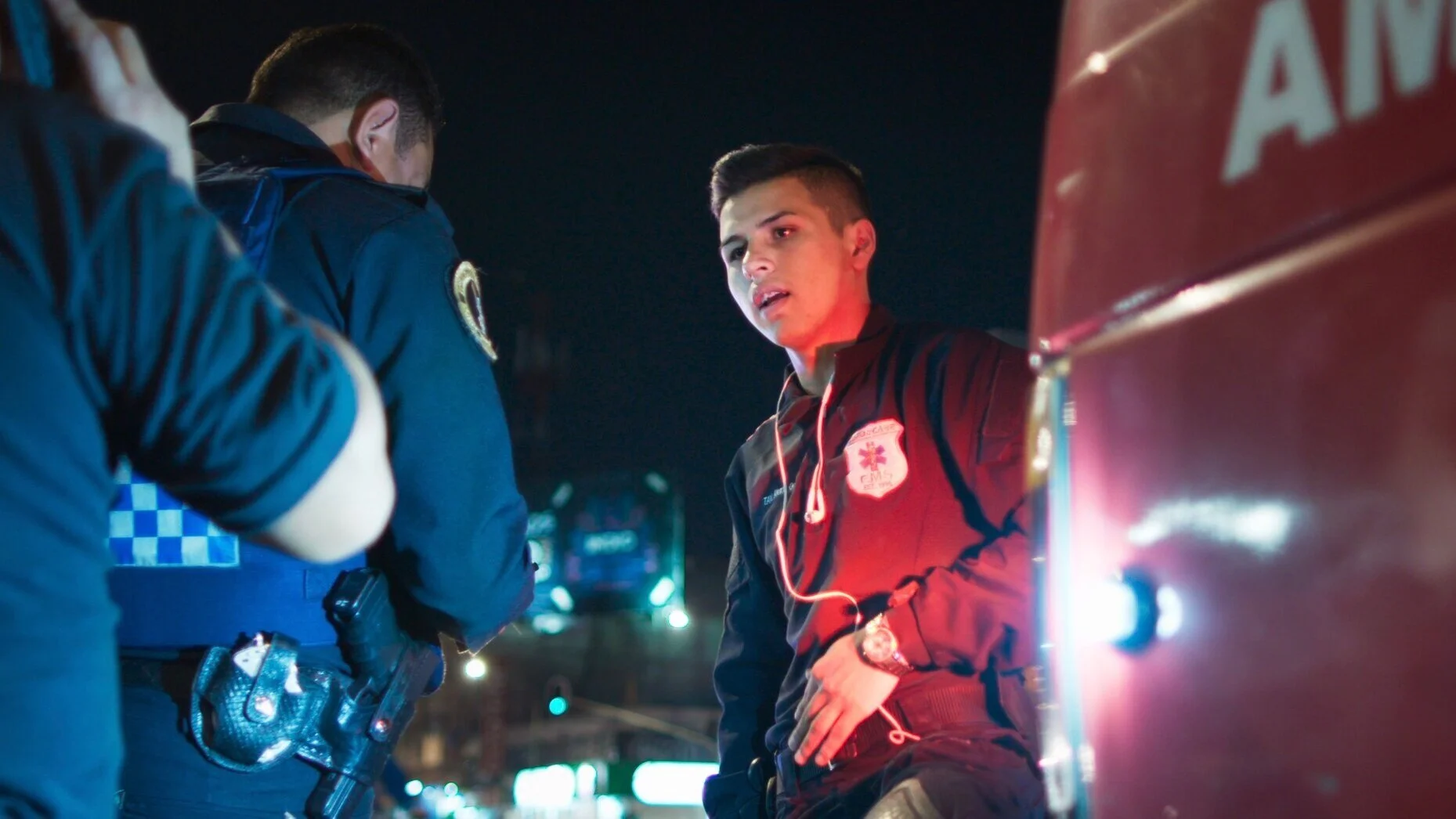Midnight Family
Night and the city provide the setting for this film from Mexico.
The young American filmmaker Luke Lorentzen does not do things by halves. On this, his second feature, he is director, photographer, editor and co-producer and the result is masterly. It is possible to argue as to whether or not the film should have been wider-ranging in certain respects, but within its chosen frame it is very successful indeed. Lorentzen’s intent was to make the viewer fully aware in the most direct way of the situation that exists in Mexico City as regards its ambulance services. A written statement at the outset provides the key statistic: there may be over nine million people living there but the number of government ambulances to deal with emergencies is less than forty-five. What Lorentzen shows us is the consequence of that: private ambulances filling a need, but doing so in ruthless competition with each other and with much reliance on tip-offs from cops as to locations where an ambulance is required.
To illustrate this Lorentzen decided to concentrate on one family who run an ambulance service nightly: the Ochoas. He took years in getting to know them and this paid off as is evident from their natural manner when the camera is turning. The oldest of them is Fernando, but it is his 17-year-old son, Juan, who is the forceful figure here while the regular crew is completed by one Manuel Hernández. However, one often finds another presence in the ambulance too: Juan's younger brother, Josué, who frequently goes along for the ride at the expense of his schooling. There is no commentary so we learn nothing of the family background (the three of them live in near squalor and there is no mother in evidence). Nor do we discover how and when they turned to this life-style to earn a living from the fees that they charge.
This may be a limitation, but the film is much less their personal story than a portrayal of the social issue that their trade illustrates and that is made vivid by the astuteness of the filming. Since the event depicted lacks any fully-fledged climax, Lorentzen wisely limits the film's length to 80 minutes and to his credit refuses to obtrude into the privacy of the injured (no graphic injury details ever appear). It's a sensible decision that never prevents the film from holding our attention from first to last. Furthermore, Midnight Family offers a superb example of a work that retains its sense of close intimacy regardless of Lorentzen's decision to use the 'Scope format as the best way to make viewing it a fully immersive experience. He certainly captures the adrenalin excitement of the moment as the ambulance races to the place of need (the race can indeed be a literal one with another ambulance alongside trying to get there first), but you also feel the pride of the Ochoas in their work and we witness their acceptance of the situation when they help somebody who can't afford to pay. Whether or not they sometimes exploit those they help by contriving to take them to a private hospital in order to gain a further payment remains an issue never fully investigated and that could be considered the film's main weakness. Nevertheless, this is a compelling work that makes one share the lives of the Ochoas to give a true insight into Mexico City's medical services - and it's all the better for holding back on any music score until the very last scene.
MANSEL STIMPSON
Featuring Fernando Ochoa, Juan Ochoa, Josué Ochoa, Manuel Hernández.
Dir Luke Lorentzen, Pro Kellen Quinn, Luke Lorentzen, Daniela Alatorre and Elena Fortes, Ph Luke Lorentzen, Ed Luke Lorentzen, Music Los Shajatos.
Hedgehog Films/No Ficción/Catapult Film Fund-Dogwoof.
81 mins. Mexico/USA. 2019. Rel: 21 February 2020. Cert. 15.


